Read
-
Why Not Me?
Finished
Pretty smart and entertaining. Not a ton to it – would’ve liked her to continue a bit more on any number of topics. A few of the essays felt like filler.
-

Modern Romance
Finished
-
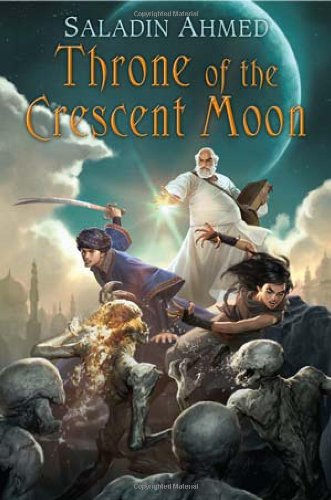
Throne of the Crescent Moon
Finished
I picked this book up a while back and put it down pretty quickly because I just couldn’t get past the constant and verbose references to God and God’s will. That’s not to say I was offended or upset in any way, I just found it really distracting. I’m not a religious person, so that may be part of it, and though English has its own set of curses and invocations – “oh my God,” “God willing,” etc, these were long sentences, sometimes paragraphs, with very little to do with the actual conversation. I wondered if they were translations of common Muslim utterances? This is of course a fictional world, but it appears to be built around something like Islam the same way much Anglo/Western fantasy is built around Arthurian and therefore Christian myth.
Anyway. I picked it up on Audible more recently, and that made it easier for me to elide these distracting tangents. It became more of a seasoning to the book rather than a heavy-handed and constant thing. At that point, I shot through the rest of the book.
It’s fun to read fantasy that’s not based on the same Anglo tropes – already this year, I read [b: An Ember in the Ashes|20560137|An Ember in the Ashes (An Ember in the Ashes, #1)|Sabaa Tahir|https://d.gr-assets.com/books/1417957944s/20560137.jpg|39113604] (Roman/Middle Eastern), [b: Shadow and Bone|10194157|Shadow and Bone (The Grisha, #1)|Leigh Bardugo|https://d.gr-assets.com/books/1339533695s/10194157.jpg|15093325] (Slavic), and [b: Uprooted|22544764|Uprooted|Naomi Novik|https://d.gr-assets.com/books/1420795060s/22544764.jpg|41876730] (a different vein of Slavic), and this was a great addition.
In animation, they teach you to create unique and identifiable silhouettes for every character, and I felt like this book had the literary version of that: each character was unique, built on archetypes but a bit deeper, and each contributed something unique to the adventure and to the story. In my head, they also had literally unique silhouettes – the large, bearded ghul hunter, the stiff and skilled swordsman, the small feral (literally and figuratively) girl, etc.
I found myself wondering how it would all wrap up, which you don’t always do in genre books like this, and at the same time I definitely enjoyed the ride – the spells, the settings, the characters. I’ll definitely end up picking up the next one.
-

Between the World and Me
Finished
Brutal but excellent. I’d recommend it to anyone and everyone. I’m not sure I understood all of it, but I plan to keep especially those passages in mind as I continue to learn and grow.
-

Children of God
Finished
3.5 if I could. Definitely not as good as the first. It dragged a lot through the middle. Still a lot of interesting stuff and it was fun both to revisit the characters and to see what happened after the events of the first book. But the story arc didn’t have the same pull as the first, and it had the disadvantage of lacking the thrill of discovery from the first book. Can’t rediscover Rakhat. It’s worth reading, especially if you enjoyed the first, but it’s definitely not on the level of the first book, in terms of characters, plot, storytelling, and introspection.
-
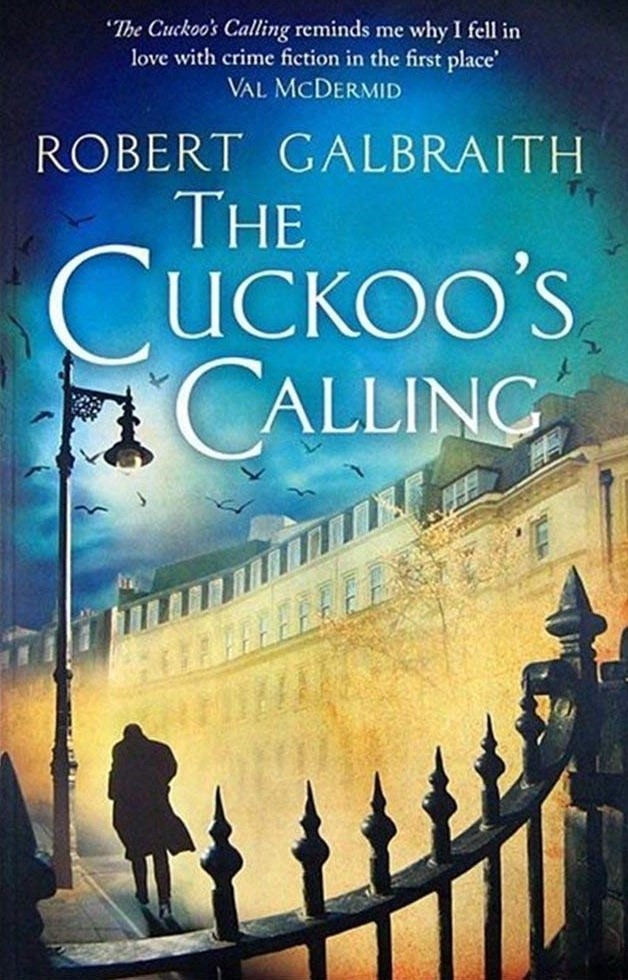
The Cuckoo's Calling
Finished
Note: please see my 2025 blog post re: Rowling
Original Review
I'm not really a crime novel reader, or whatever this genre would be called. I've listened to a few (listened to this on Audible as well) and they weren't awful but I found myself mostly impatient to know the end and be done with it. Here, I definitely wanted to know what happened but I also found the characters pretty entertaining and the process of getting there pretty fun.I had no idea what to expect from Rowling in such a different genre, but she’s a really good storyteller, and it showed here as it showed in the Potter books.
It wasn’t a perfect book. But I think it knew its strengths and went with it – it didn’t spend very long establishing Deeby Macc as a rapper, or go into much detail about his music, and I think that was a good choice, because that pretty much never ends well. Strike is a kind of cartoon of a private eye, but I loved it. It was good pulp. I mean, basically that’s it. It was a fun read. I’ll read the next one.
-
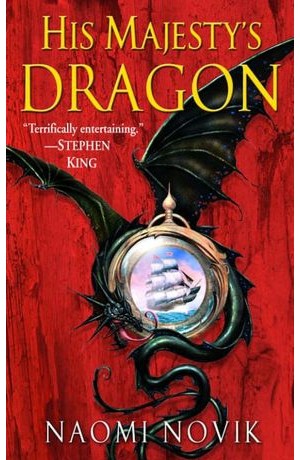
His Majesty's Dragon
Finished
I liked Uprooted a lot better. There was nothing wrong with this book but it didn’t really grab me in any way. It was an interesting world with decent characters but just … meh? as a novel.
-
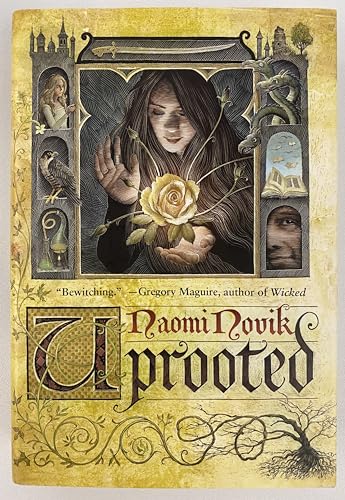
Uprooted
Finished
I really enjoyed this book. I’d been looking, for a while, for the next book that would capture me, make me care about the characters and really look forward to picking it up again – which hadn’t happened since I finished Lev Grossman’s Magicians trilogy – and this was it.
I don’t know if this book is YA. It’s hard to tell at a certain point. The vocabulary is good but probably not overly challenging. The subject matter borders on adult? But in a fantasy genre that appears to mark itself as “adult” by competing to show misery and depravity (“historical accuracy”), or at least requires massive tomes with hundreds of characters, a book like this feels out of place. Like Gaiman’s Stardust, it’s got more of a fairy tale than a strict “fantasy” feel. In the end I’d categorize this as YA-appropriate but probably not a YA book.
Like Leigh Bardugo’s Shadow and Bone series, this book opts for a Slavic backdrop rather than the obligatory Anglo-Saxon/Arthurian roots of the vast majority of fantasy, but I thought it was better executed here than in Bardugo’s books (her first, at least) – it felt more authentic, for whatever reason. Even though I think largely the names and myths of the book could’ve been replaced with Anglo equivalents and succeeded nearly as well, the way this universe blended “real” Slavic myths like Baba Jaga into this fictional world, and built the magic and the adventure around those sensibilities (the magic wood, the creatures that inhabited it, the way the songs are sung like traditional folk melodies rather than epic castings) really worked well.
A note: with place names like Rosya, Polna, and Venizia (or something like that) I constantly found myself trying to fit this adventure into real-life Eastern Europe. At the end of the day though, my conclusion was that this world drew inspiration from ours, but was not intended to be one and the same. Maybe I missed it. But if Polna is Poland, what is its capital, Kralia (which seems closest to, say, Kraljevo in Serbia, as far as I can tell)?
Another thing I liked about the book was that while it existed in a kind of fairy-tale world, I was never fully sure what to expect. The adventure wasn’t laid out before me when I started the book, and it didn’t turn out to do what I did expect. Yet with that said, I rarely felt like the new developments were forced or overt maneuverings of the author – it was just a well-built narrative.
This book wasn’t perfect. I felt a bit let down by the climax – by the partial explanation/history that was unveiled, and by the underlying concepts there. Not overly so, but just a little. I had been built up: I wanted to know! To know more, to understand better.
I want to give this 4.5 stars because I have read better books, certainly. But this was so fun, so well-crafted. 4 stars would be too low. So… 5 it is.
-
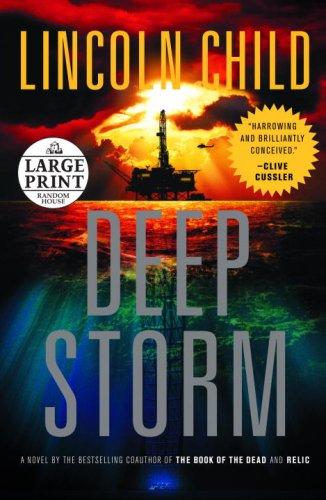
Deep Storm
Finished
The writing style and the depth of the characters were about as expected, but I actually really enjoyed the story and its concepts – more than I expected. It was intriguing and didn’t have me rolling my eyes nearly as often as I was afraid I might. Maybe I’m giving it four stars because my expectations began so low? Which isn’t to say I expected it to be terrible – I expected to enjoy it, but more in the way one enjoys “bad television,” or similar media: largely in spite of itself. I expected it to be mindless fun, and while it certainly wasn’t high-brow, it was interesting and entertaining from start to finish. I’d read another one of Child’s books before I read another Dan Brown (whose books purport to be intellectually compelling).
-
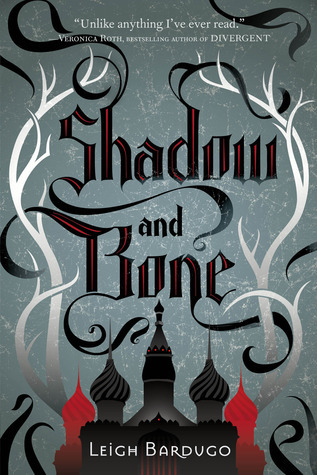
Shadow and Bone
Finished
I’m not sure it’s particularly better than a bunch of the YA competing in the space right now, as far as writing or ingenuity, but I found the slavic/Russian slant an interesting complication, with so much of the genre leaning toward Anglo fantasy. The main character clearly has some body dysmorphia but otherwise strong and interesting, and the plot didn’t really do what I expected to, which I always appreciate. Will probably take a stab at the next one.
-
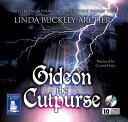
Gideon the Cutpurse
Finished
Finally finished this. Always found it intriguing but for some reason was never getting any momentum with actually reading it. Switched to audiobook, which reduces some of that friction (usually the friction is that I’m trying to read and my body is trying to go to sleep), and blew through the remaining stuff. Lots of fun. I liked the characters; I liked that the author doesn’t particularly talk down to the (presumably YA) reader, even regarding some pretty fun (if mostly bogus) science stuff; I liked the plot. I think there are more, and I’m definitely gonna have to pick up at least the next one.
-
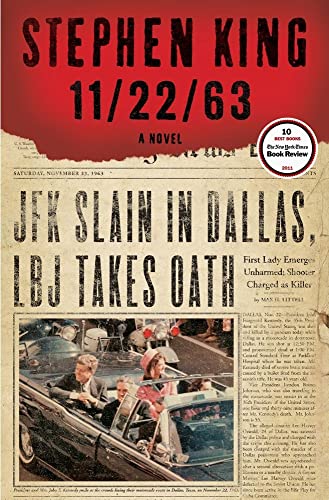
11/22/63
Finished
3.5 - 4, but they don’t allow half stars. Pretty fun. I feel like it kind of fizzled at the end and honestly, I didn’t go much for the whole Sadie saga, which became the focal point as the book went on. But it was still mostly very interesting, moderately smart, and a fun time-travel adventure.
-
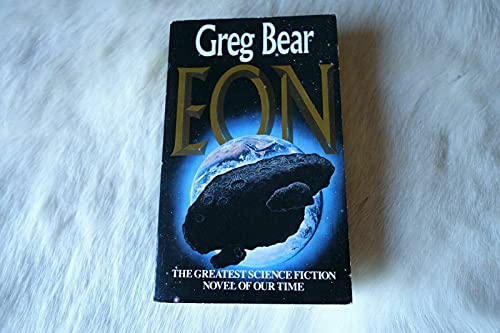
Eon
Finished
-
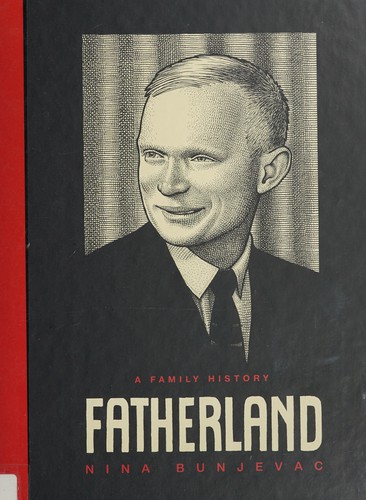
Fatherland
Finished
Very quick read. Kind of a strange approach to telling the story, but definitely interesting, communicative, informative. Surprisingly sympathetic (without of course condoning some terrible acts). The art is well-crafted and a also relatively unusual style in the medium – you see a lot of faux-amateur indie comics; a few photorealistic; plenty that mimic the mainstream. You don’t see a ton with this sort of Wall Street Journal portrait crosshatching/stippling style. Or, at least, I don’t.
I did find it interesting how the author anglicized not just names and nicknames (somewhat reasonable, though I realized I kind of expect at least some foreign words thrown into conversation between foreigners in media) but also the conversational style. I had to remind myself that these conversations were (presumably, though never explicitly stated) taking place in Serbo-Croatian. Even a few place names got anglicized: Niš became “Nish,” for example. But Dejan wasn’t “Deyan.” This won’t be a thing for most people, but as someone who spends a lot of time around Serbs (girlfriend and family), I actually found it kind of distracting.
-
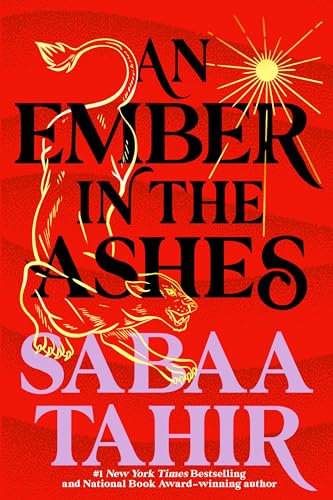
An Ember in the Ashes
Finished
Really enjoyable. I guess I wasn’t entirely aware what the plan was for future books, so I was a little caught off guard by the very, very unresolved ending. But I get it – it feels less unresolved with the understanding that it’s part of a series. It’s just that I had certain expectations, certain theories about prophecies etc that I thought would be resolved at a certain point, but weren’t.
The universe is unique and exciting and the two character’s voices are genuine and compelling. Good book. Will eagerly await the next.
I am a little confused about whether this is YA or not? It mostly reads like YA, and that’s how it was presented to me, but there’s a lot of discussion of/threat of rape. It’d be one thing if this were a book discussing actual history, but as “flavoring” in a fantasy novel, I don’t tend to like that in adult books, let alone YA. I dunno. Unresolved feelings about that.